Food Rescue - Food Waste Prevention
The Food Waste Problem
Illinois EPA estimates that approximately 3.8 million tons of food is landfilled in Illinois every year. While some of that amount is food scraps that are not edible to people, a significant portion is edible food that is wasted because it is either deemed unsellable by a retailer or distributer or it is bought and thrown away by the consumer. Sometimes food vendors decide something is not sellable because it is too old/not fresh enough to meet quality standards. However, these standards are somewhat arbitrary and are not defined in law. Fun fact: eggs are the only food product in Illinois that are illegal to sell beyond the date on the carton. Putting food in the landfill is not only a waste of energy and water; when food waste decomposes, it releases methane, a powerful greenhouse gas.
Wasted food and food scraps makes up about 17.5% of all landfilled material in Illinois.
Food Insecurity
It is especially troubling that so much food goes to waste when there are families going without enough to eat in our community.
Recent survey work by Kane County Health Department (PDF) showed that 40% of Kane households with minor-aged children worried about running out of food before having money to buy more, while
34.5% of households with minor children reported actually having run out of food.
Food Rescue
Food rescue, also known as food diversion, addresses both of the problems described above, keeping excess edible food out of the landfill by getting it into the hands and bellies of folks who need it.
The Northern Illinois Food Bank is a local champion of food rescue headquartered here in Kane County and serving the Collar Counties and more. Did you know that about 80% of food distributed by NIFB comes directly from food companies and retailers? If you are in need of food assistance, please check out
NIFB's resources online or call (630) 443-6910. City/neighborhood food pantries also play critical roles in food rescue and solving food insecurity. Check out
this article in Kane County Connects in honor of Hunger Action Month with links to food pantries in the County.
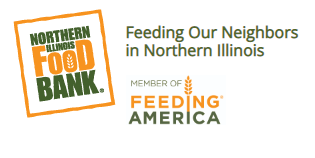
Community fridges can be a means of food rescue, and are also a means of supporting community through mutual aid. The only known community fridge in Kane County is in Aurora. It is maintained by Aurora Mutual Aid, and is located at Fresh Start City Church, 10 S. Lancaster Ave. in Aurora. Community members are encouraged to stock the fridge with any useable produce, bread products, diary and plant-based milks, cheeses, deli meats, frozen raw meats, fruit juices and other soft drinks, sauces, nut butters, sealed packaged foods, eggs, and baby food they have to share. Leftovers, unsealed containers, and items without ingredients or expiry dates are not accepted.
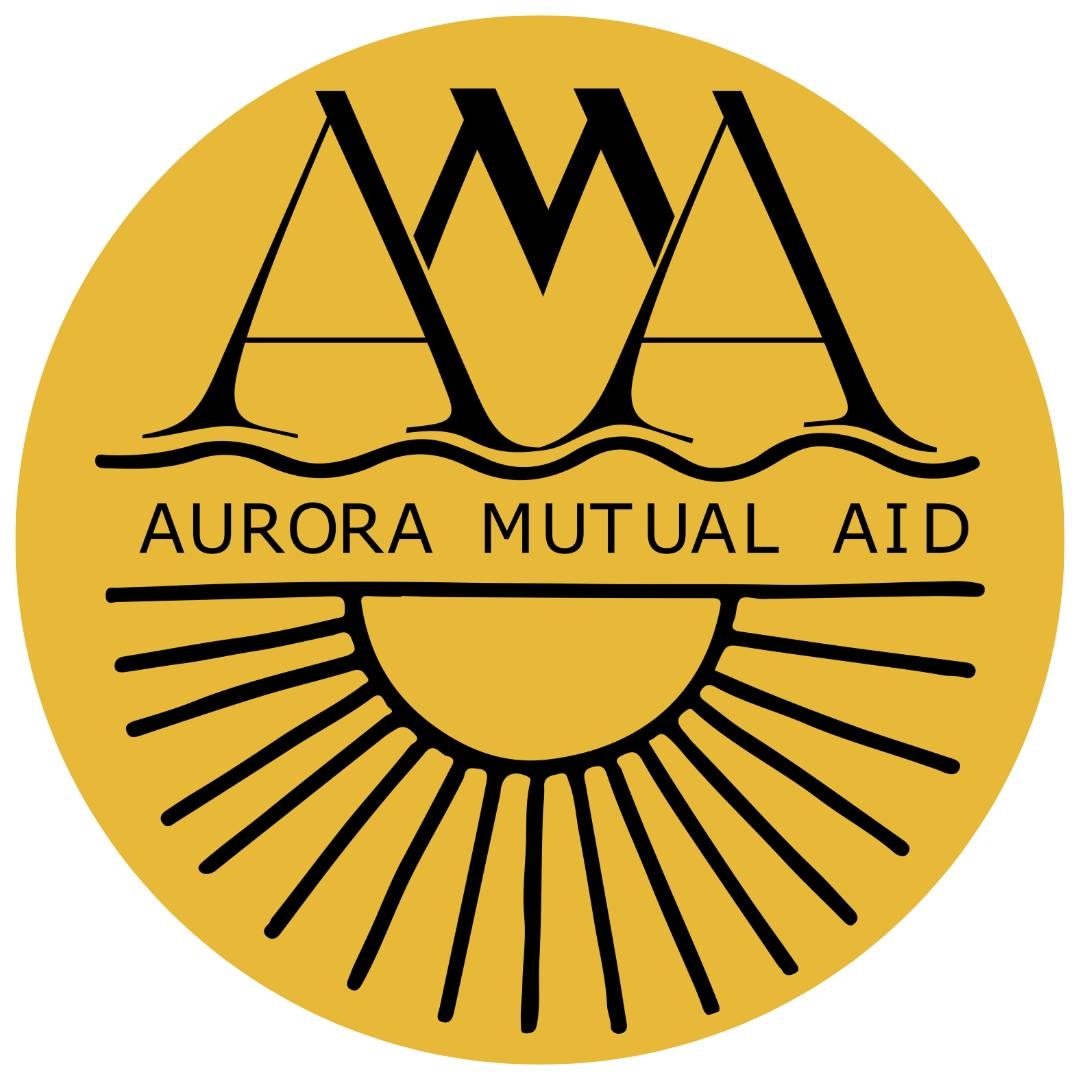
Mobile apps have been developed to help connect organizations and even individuals with food at risk of going to waste with people looking for fresh food at reduced prices. For grocery stores, there is an app called
Flashfood. Currently, Meijer supermarkets, with locations in Elgin, St. Charles, east Aurora and Oswego, participates. Each location lists items in the app that are usually within a few days of the "best by" date at steeply discounted prices. Offerings often include bakery items, prepared meals, meat, cheese and produce. Customers can buy the items through the app and pick up right at customer service. The Flashfood app is free to download for iOS and Android.

There is also
Misfits Market, which is a discount online grocery delivery service specializing in rescued organic produce and other items nearing their "best by" dates. Produce may not meet the strict aesthetic standards of grocery stores (e.g., too large or small, off-color, misshapen, etc.) but is still fresh and tasty. To quote Joni Mitchell "Give me spots on my apples, but leave me the birds and the bees please."
Learn more here!

For restaurants, cafes and bakeries, there is Too Good to Go. Restaurants can list food at steeply discounted prices and specify a pick-up window when that food will be available. Customers can reserve specific items and "surprise bags" through the app. The "surprise bags" allow restaurants to make a listing for their leftover food of the day without specifying the exact contents. This obviously works best for customers who aren't very picky and who don't have dietary restrictions. As of August 2022 there are restaurants in Aurora and the tri-cities listing food on the app. Encourage your favorite spot to sign up! The Too Good to Go app is free to download for iOS and Android.

Fresh Food Connect is a not-for-profit smartphone app that helps connect gardeners (either community garden coordinators or backyard gardeners) who grow food with local non-profits looking to improve the amount of produce available to families in need. The app also tracks each gardener's donations.
As reported in Kane County Connects, the
Garden Works Project, located in Wheaton, is using Fresh Food Connect to serve Kane and DuPage Counties. The Fresh Food Connect app is free to download for iOS and Android.
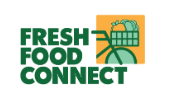
Do you know of another food rescue resource we should cover here? Email info to recycle@kanecountyil.gov!
Food Waste Prevention Tips
There are actions that every household can take to prevent food waste!
The first is to plan a menu before grocery shopping and to buy only what is needed to fulfill the menu plus any additional staples and snacks. Make sure you check your list against what you already have in your pantry to avoid duplicates. This helps prevent over-buying or aspirational buying of items that aren't likely to be used before they spoil.
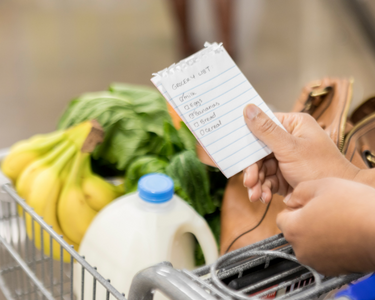
Planning a menu and making a grocery list can prevent over-buying food. Photo: Canva Pro
Another tip is not to grocery shop on an empty stomach. A research study on customer behavior found that hungry shoppers are more likely to buy unhealthy foods and to over-buy.
If you find that you have over-bought a perishable food (or if it was only available in a quantity larger than you needed), can it be frozen or given away? Could you use it in an extra recipe to either share with friends, family or neighbors or to freeze?
Some highly perishable foods including fruit, herbs and even hot peppers can be boiled with water and sugar (1:1 ratio) to make tasty syrups for flavoring seltzer water, plain yogurt, vanilla ice cream, and adult beverages. These syrups last for several weeks in the fridge in a sealed mason jar or similar tight-lidded container.
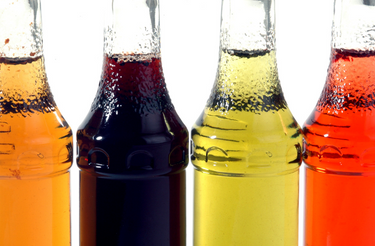
Experiment making home-made flavoring syrups with leftover fruit! Photo: Canva Pro
For a healthier option, fresh herbs can be frozen in ice cube trays. Just fill each cell about 3/4 with chopped herbs of choice and fill the rest of the cell with either olive oil or water. Once frozen, the blocks can be stored in freezer bags for up to a year!
Have a food waste prevention tip we should share? Email it to recycle@kanecountyil.gov
Resources
Illinois EPA Food Waste Page
Wasted Food Action Alliance (Illinois-based)
NRDC 2021 Illinois Food Waste Policy Gap Analysis (PDF)
NRDC Save the Food
U.S. EPA Preventing Food Waste at Home
Harvard School of Public Health - Tips for Tackling Food Waste at Home
USDA Food Waste FAQs